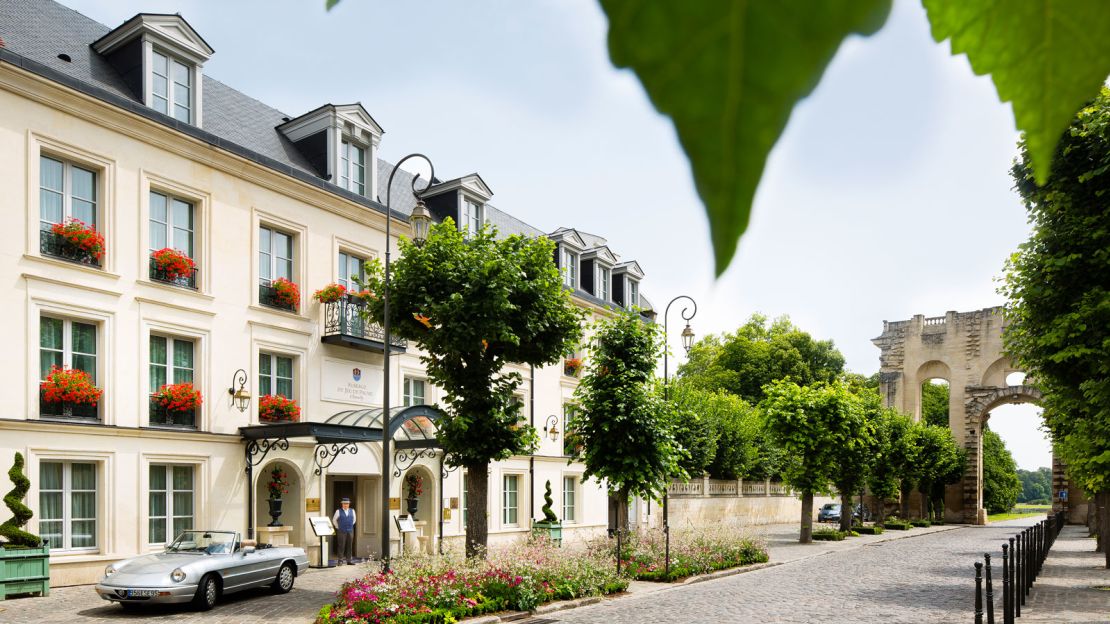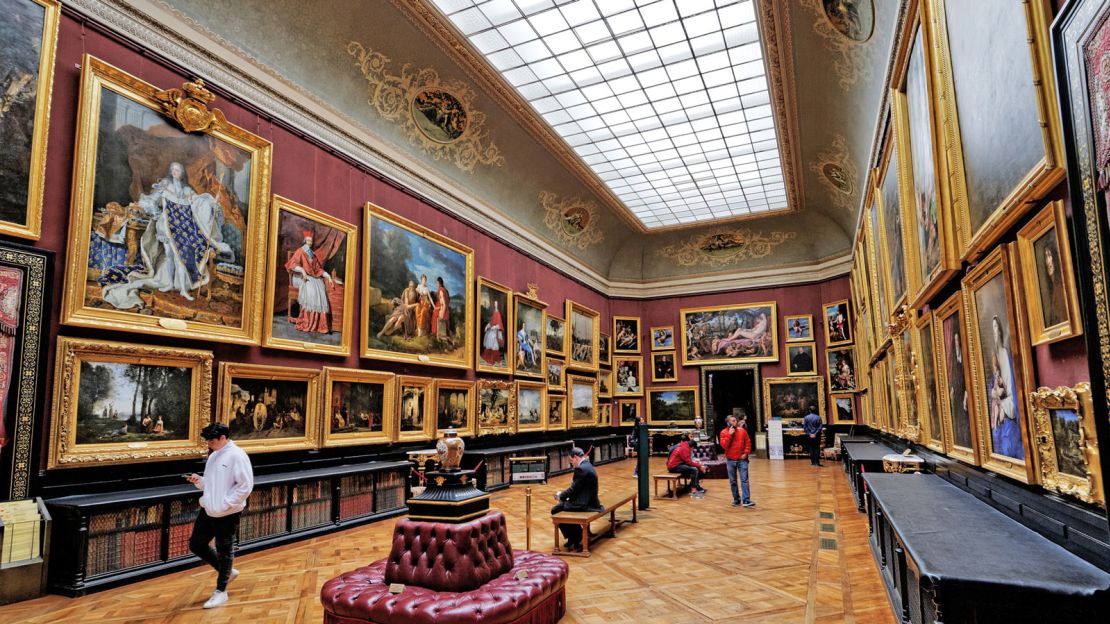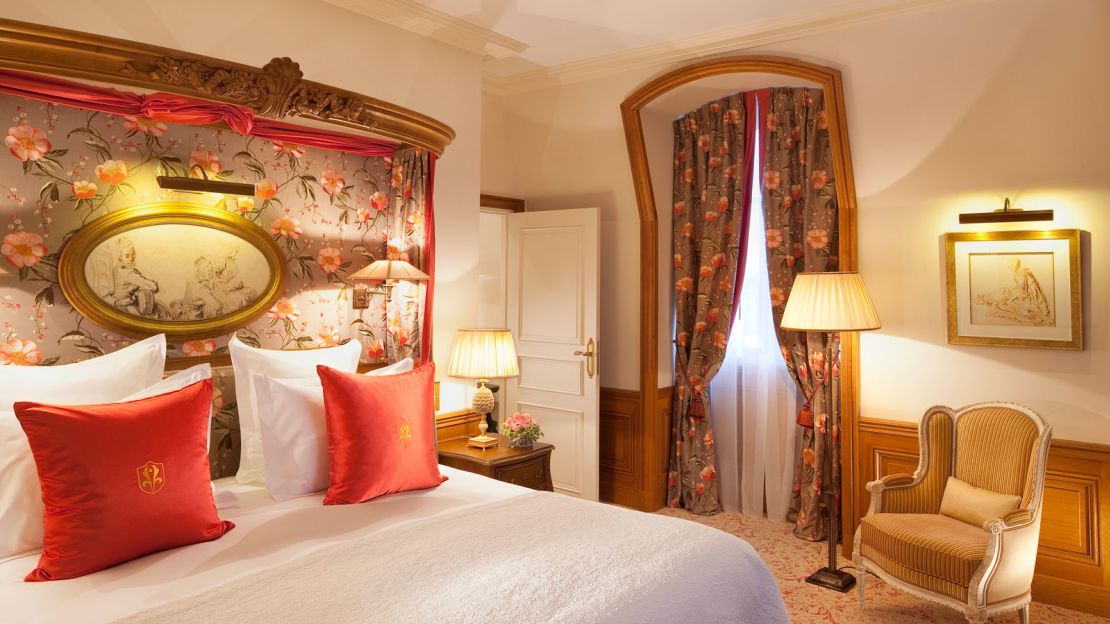You could call it a smaller, quieter version of the Palace of Versailles.
There’s an on-site mansion, sprawling André Le Nôtre-designed gardens, Michelin-starred gastronomy and a five-star hotel.
But, crucially, no sea of tourists.
In recent years, city-weary Parisians in the know – and in the money – have been escaping to the Domaine de Chantilly, a retreat just 40 minutes away by train or car from the daily grind, chaos and noise of urban living in the French capital.
Surrounded by dense, green forests, it’s home to one of France’s lesser known châteaux, long eclipsed by its more ostentatious cousins in the Loire Valley and Versailles.
Restorative retreat

At its heart is Auberge du Jeu de Paume, a five-star hotel built specifically with Parisians in mind.
The allure? A restorative retreat where stressed-out urbanites can live like 19th-century French nobility in the bucolic countryside – think horseback riding, polo, long forest promenades and Swiss spa treatments – if only for a weekend.
“When we first opened in 2012, our target market was the Parisian market,” says Pascal Groell, the hotel’s director, or “maître de maison.”
“Paris is close by and easy to develop. But we very quickly discovered that the city of Chantilly was not well-known in the market or outside of France, even though this is a real gem. There are a lot of things to discover here.”
Chantilly is best known within the upper echelons of Paris society for hosting some of the most prestigious horse races in Europe, including the Prix de Diane Longines and the Prix du Jockey Club, also known as the French Derby.
The château’s last owner, Henri d’Orléans, Duke of Aumale, is credited with establishing the first racecourse in France, in the 19th century, after discovering the sport in England.
Chantilly is also known for hosting polo events and the luxury classic car show Chantilly Arts & Elegance. In other words, elite events traditionally reserved for society’s upper crust.
What’s perhaps lesser known are the assets that give the area broader appeal for the general public.
Rich heritage

The Château de Chantilly houses the second largest collection of antique paintings in France after the Louvre, while sweetened whipped cream, otherwise known as Chantilly, was popularized here.
The Aga Khan, Prince Shah Karim Al Hussaini, adopted the Domaine de Chantilly in 2005 as one of his many pet projects, pledging to preserve and develop the region’s history and heritage.
A big part of this vision would be the opening of a five-star hotel to attract overnight visitors and make the area an easy, accessible escapade for Parisians on the weekends and for tourists on their final night in France. The hotel is a 20-minute drive from Charles de Gaulle Airport.
A visit on the Monday following the latest edition of the Prix de Diane Longines, traditionally held every June, offers a technicolor snapshot of this ritzy world.
In the lobby, stunning floral centerpieces made to replicate fancy ladies’ hats and fascinators worn at the races fill the space.
“The Mentalist” star Simon Baker and British actress Kate Winslet have just left the property after fulfilling their duties as ambassadors for a Swiss luxury watchmaker and the post-race atmosphere is relaxed and casual.
As one of the biggest events of the year, the race helped fill nearly all of the hotel’s 92 rooms and suites.
The lobby is thronged with guests from Asia, who’ve spent the night like French aristocracy in rooms designed to evoke the elegance of 18th-century France.
Think Louis XV armchairs, voluminous drapes, burgundy and blue printed Jouy fabrics depicting pastoral scenes of the French countryside, and private terraces overlooking the château gardens.
The hotel furniture was made in France by artisan workshop Henryot & Cie, which has been manufacturing traditional furniture and seating for more than 150 years in the Vosges region.
Only the bathrooms feature foreign materials: Italian Carrara marble, Venetian mirrors and Murano glass.
‘Savoir-vivre’

But sleeping in the shadow of a French castle where the local hobbies include horseback riding and polo comes, predictably, at a price.
During high season, rates for basic rooms vary widely, ranging from 300 to 650 euros a night ($335 to $730). Suites can go for as much as 5,000 euros a night ($5,600).
One or two nights is also likely more than enough time to explore the grounds for guests planning to stay exclusively on the Domaine, particularly if horses and elite equestrian sports figure low on your list of interests.
The property is a member of the Relais & Châteaux association, widely recognized among the French as the gold standard for independent, luxury, historic properties. It’s one of the closest Relais & Châteaux properties to Paris.
And the hotel’s chef concierge Dimitri Ruiz boasts the distinction of being president of Les Clés d’Or France, an association of concierges for the most prestigious properties in the country.
Because in the end, Groell notes that the hotel is as much about the French “savoir vivre” – the ability to live elegantly, with poise and good manners – as it is about living in sumptuous rooms for a few days.
“Now people are looking for experiences, human relationships. They’re not just coming to be accommodated in a nice property. We have a beautiful hotel, but our strength here is the service and the people.”
As part of this philosophy, Groell said the hotel is getting ready to launch a new program that will involve creating exclusive, personalized experiences for guests that could include anything from farmers’ market visits with a private chef or visits with local horse trainers. Guests would be contacted weeks before their visit to create a bespoke itinerary.
Aside from personalized experiences, visitors can also book year-round activities like a luxury spa treatment, Michelin-starred dinner at the hotel’s La Table du Connétable, and visits to the nearby castle and The Museum of the Horse.
In warmer weather, the domain becomes the guest’s playground. There are French and Anglo-Chinese gardens, miles of uninterrupted walking, running and biking trails and horseback riding within dense, lush forest, along with golf and hunting in the vicinity.
“We want to make sure that when guests leave Chantilly, they’ve learned about the history and heritage of the destination,” Groell says. “This is one of our most important goals.”
Auberge du Jeu de Paume, 4 Rue du Connétable, 60500 Chantilly, France; +33 3 44 65 50 00
Vivian Song is a Toronto expat and Paris-based journalist. She can be found on Instagram @vivsongviv.






















